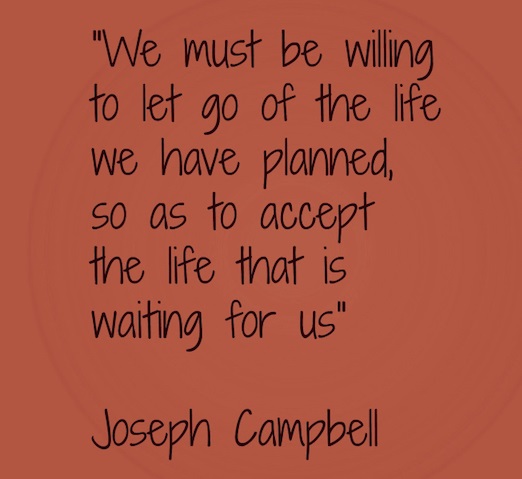
|
Mother Pelican
A Journal of Solidarity and Sustainability
Vol. 18, No. 10, October 2022
Luis T. Gutiérrez, Editor
|
|
|
|

|
|
|
How Do We Teach the Critical Skills
Needed to Face Collapse?
Dave Pollard
This article was originally published by
How to Save the World, 10 September 2022
under a Creative Commons License
 ![]()
Click on the image to enlarge.
|
|
So civilization, at least as we know it, is going to collapse — political, economic, social, educational, health, transportation, technological systems all will fail, a bit a first, and then more and more.
We have no idea when it will be complete — could be in 10 years, or in 40. We have no idea how it will play out — how quickly, where first, what systems and governments will go first.
We don’t even know how people will react to this Slow (and Permanent) Emergency. So how can we possibly prepare for it?
I think the best answer to this is to teach a lot of people a lot of skills, hard and soft, that they don’t currently have, so that we’re kind of ready for anything. Here’s a list of ten possibly critical soft skills, and ten possibly critical hard skills, that very few of us (in most countries) are competent at at the moment. The ones in italics are, IMO, those that it is important that most people learn; for the remainder, it’s important that some people in each community be very competent at them:
Soft Skills:
- Critical thinking — the ability to think for yourself, reason things through, be self-aware of how emotions play into each issue, and basically the capacity to study, research, analyze, problem-solve and learn without being spoon-fed.
- Group facilitation — the ability to help groups work and think collectively, achieve consensus, resolve conflicts, and manage themselves, notably by modelling exemplary facilitation skills themselves.
- Helping people cope — the ability to counsel others on dealing with and healing from loss, uncertainty, fear, grief, shame, anger, anxiety and other emotions that will inevitably arise and make people dysfunctional as the crises of collapse unfold.
- Preparing healthy food — the ability to cook and otherwise prepare, blend, and complement foods “from scratch”.
- Caring for the young, old, and sick — the ability to help raise healthy children and optimize the quality of life for those unable to care for themselves
- Imaginative, reflective and creative skills — for arts, music, and crafts, for recreation and entertainment, for problem-solving, and to enable and encourage ‘playful’ learning (the most effective kind)
- Mentoring — the skills of guiding others to effectively solve problems and fulfil their wants and needs, and demonstrating how to do things well; when advising those who lack critical thinking and similar auto-pedagogical skills, this will have to be broadened to ‘teaching’
- Listening, noticing and attention skills — without them, in a harsher, less forgiving world, we will simply be dead
- Conversation — the ability to communicate and convey clearly and articulately the imperatives of the day; conversation skills are also essential to most of the other skills in these two lists
- Community-building — a whole series of skills that entail nurturing a healthy culture, organizing, sharing responsibility, building on what works, attracting others to the community, and making the community more collaborative, cooperative, enterprising, healthy, resilient and competent
Hard skills (that require some specific technical knowledge/experience):
- Growing and harvesting food — I don’t include hunting and fishing in this category because my sense is that as collapse deepens, crashing populations of most other animals, and their toxic environments, will make this a mostly fruitless and sometimes dangerous vocation
- Making and repairing (i) clothing and (ii) shelter from the elements
- Accessing clean, safe water
- Weaving, fabric-making, pottery and other crafting skills that make life much more comfortable and pleasant
- Medical, medicinal, and injury-healing knowledge and skills — including a whole new range of detoxification practices as our air, water, food and soils become increasingly polluted and deadly
- Food preservation — in the increasing absence of electricity and fuels that enable us to heat or cool foods to preserve them longer
- Bicycle construction and repair — excluding feet, bicycles remain humans’ commonest means of transportation, and will soon become even more so
- Basic engineering skills — plumbing, electrical, bridge-building, road-making, water and sewer maintenance etc, to extend the life of crumbling, unaffordable infrastructure and develop simple and inexpensive replacements for it
- Ecological skills —knowledge of the natural place in which the community lives, its resources, how to sustain its balance, what’s edible and what’s poison, how to deal with hazards (fires, floods, quicksand, poisonous creatures and plants), etc.
- Decommissioning — knowledge of procedures sufficient to prevent the world’s nuclear reactors and petrochemical “alleys” from deteriorating to the point they explode and end life for all of us, when we no longer have the technology and resources needed to keep them functioning as they do now
My sense is that, like language ability, a lot of these skills are much, much easier to learn earlier in life than later, so we might be wise to focus on inculcating as many of these skills as possible in our young people, instead of teaching them law and accounting and other skills that will be mostly useless once collapse overtakes us.
Several people have asked me why I put ‘critical thinking’ on this list. My sense, from reading works like the Davids’ The Dawn of Everything and Peter Brody’s The Other Side of Eden is that what most distinguishes our civilization from most prehistoric and indigenous ones is that, before education became something that we ‘did’ to people, most people naturally acquired this essential skill, by facing the many existential challenges that life outside our synthetic, infantilizing, prosthetic, standardized culture presented to them every day. In short, they learned how to learn because they had to; they didn’t have to be ‘taught’.
My experience has been that, given that it is no longer a prerequisite for survival, critical thinking is now something that has to be specifically nurtured in people, which probably happens most often by parents’ encouragement. Lacking that, there’s a natural propensity, I think, for simplification and uncritical reaction. But if you’re taught the value and importance of critical thinking, I think you figure out this process of weighing and assessing and challenging what the world throws at you.
But I’m not so sure about this. Maybe, just as we can learn to make our own clothes and grow much of our own food if and when we have to (as millions discovered during the Great Depression), we can also learn to learn, to think critically, to challenge unsupported rhetoric, to think for ourselves instead of relying on increasingly-incompetent media to tell us what we should and should not believe.
When it begins to dawn on us, in five years or twenty-five, that we are going to have to quickly instil the above currently-rare skills in many or even most of our people, how might we go about it? As pessimistic as I am, I just can’t believe it’s already too late to do so.
So I’m thinking about these questions:
- What’s the most effective way to voluntarily get billions of people to the point they are capable of exercising the above skills?
- How do we get the timing right: Not so early that there’s not yet a sense of urgency, but not so late that we’re trying to do it in an environment of chaos?
- How might we begin to identify, improve the competencies of, and empower the right people to do the mentoring, teaching, training, demonstrating, connecting, modelling, and other hands-on imparting of knowledge and skills needed to make it happen?
- How can we make this new, crucial learning easier, and fun?
I am starting to see the beginnings of a movement among ‘collapsniks’ to at least start thinking about all this. Paul Heft sent me this article about the practice of ‘coaching’ people on how to provide ‘therapy’ to those struggling to deal with collapse. I think it’s a timid start — it seems mostly attuned to a traditional practice of a professional therapist/coach providing services to needy people trying to cope with the reality of collapse, which I think is fraught will all kinds of problems.
Still, it has some interesting ideas, such as the idea of moving beyond the therapist-individual patient relationship to catering to a complete community holistically. The ‘problem’ isn’t the individual’s incapacity to cope with collapse, it is the collective experience of collapse itself.
I’m reading a book about the lives of people in the most polluted, least educated, most disadvantaged, and most dangerously toxic (and most conservative) part of Louisiana (more about that in an upcoming article). What emerges from the author’s study is that (1) these people are living in a ‘world’ that is already in a very advanced state of economic and ecological collapse, one that may foretell what the rest of us in ‘affluent’ nations will soon face; (2) they are far more of a ‘community’ than most people living in cities could claim; and (3) they are not particularly interested in paternalistic ‘grief professionals’ ‘coaching’ them on how to manage the massive grief and other emotions they and their families have been dealing with for generations.
So I don’t see any top-down ‘professional’ answer to developing the above essential skills in the coming decades, not even the skill of ‘helping people cope’ with collapse. I think the answer has to emerge bottom up, from within each community as that community establishes itself. As the Joseph Campbell quote at the top of this article suggests, we will have to start the collective process by appreciating that no one is going to ‘fix’ the predicament of collapse for us, and that it cannot be fixed, only adapted to. Half of the above skills will require a deep knowledge of place, context and history, one that outsiders cannot possibly bring. Many of the remainder will require very different approaches to accommodate the very different cultures in which people dealing with collapse have been living, and how they’re prepared to adapt.
So I’m back to the list of skills, and to the four questions I posed above.
I don’t have any answers.
That in itself, perhaps, is a start.
Note: Thanks to Kavana Tree Bressen, Tom Atlee, John Abbe and Paul Heft for the conversations that helped me in the thinking above. Their opinions on this subject, however, are undoubtedly different from mine.
|
ABOUT THE AUTHOR
Dave Pollard publishes the blog How to Save the World, a chronicle of civilization's collapse, creative works, and essays on our culture, searching for a better way to live and make a living, and a better understanding of how the world really works. For more information about this author, click here.
|
|Back to Title|
LINK TO THE CURRENT ISSUE
LINK TO THE HOME PAGE
|
|
|
|
"You may be able to fool the voters,
but not the atmosphere."
Donella Meadows (1941-2001)
|
|
Page 12
|
|
FREE SUBSCRIPTION
|
![[groups_small]](groups_small.gif)
|
Subscribe to the
Mother Pelican Journal
via the Solidarity-Sustainability Group
Enter your email address:
|
|
|
|